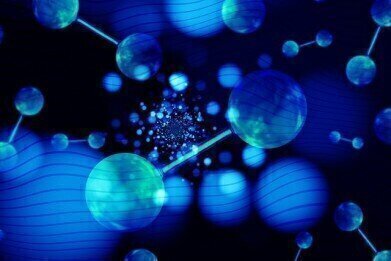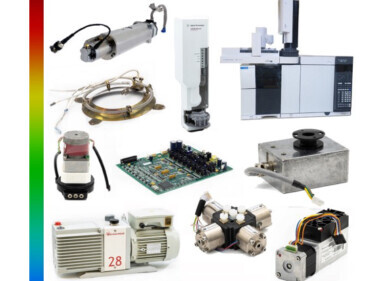Chromatography
What is a Hydrogen Gas Generator?
Jun 19 2022
Used to power gas chromatographs, electrolyser stacks and other instruments, hydrogen is one of the most common gases used in modern laboratories. Instead of relying on high-pressure cylinders that compromise safety and efficiency, many laboratories have made the switch to hydrogen gas generators.
They offer a laundry list of benefits, including the opportunity to improve workflow efficiency, heighten accuracy and reduce costs associated with purchasing pressurised gas cylinders. Want to know more about hydrogen gas generators? We cover everything you need to know about how they work, different applications and what’s next for the industry.
The advent of hydrogen gas generators
Before the invention of hydrogen gas generators, helium was used as a carrier gas for Gas Chromatography (GC) instruments. Rising costs and limited availability of helium has seen hydrogen emerge as an affordable and efficient replacement. Hydrogen also has a higher optimal velocity than helium. This accelerates analysis times and improves laboratory workflows.
The role of water electrolysis
Most hydrogen gas generators use electrolysis to generate hydrogen. Powered by electricity, the process splits H2O molecules into hydrogen (H) and oxygen (O). A built-in cell containing both an anodic and cathodic catalyst sandwiched between a polymer-electrolyte membrane (PEM) breaks the bonds between the hydrogen and oxygen atoms.
As each H2O molecule is split, the pair of two hydrogen atoms gravitate towards the cathodic catalyst and the single oxygen atom moves to the anodic catalyst. Pressure then starts to build in the hydrogen gas generator. When the appropriate pressure level is reached, hydrogen is delivered to the instrument or end user.
The benefits of hydrogen gas generators
We touched on the benefits of hydrogen gas generators earlier, but let’s take a closer look at the value they offer to laboratories.
- Eliminate the need to store pressurised, highly flammable hydrogen cylinders in the laboratory
- Reduce the costs associated with continually ordering and replacing hydrogen cylinders
- No need to install high pressure gas pipework
- Guarantees pure, laboratory-quality hydrogen
- Allows laboratory personnel to generate hydrogen gas on demand
Hydrogen gas generators in laboratory settings
Not all hydrogen gas generators are the same, with different models used for different applications. For example, hydrogen generators used to run sensitive analytical instruments such as gas chromatographs generate ultra-pure, low-pressure hydrogen. In comparison, hydrogen generators used in synthetic chemistry experiments prioritise pressure over purity.
With cost, efficiency and safety benefits on the table, it’s no surprise the market for laboratory gas generators is set to reach a value of USD$156 million by 2030.
Hydrogen isn’t the only gas generated at laboratories. Find out more about other types of gas generators, including instruments that remove hydrocarbons such as methane from ambient air, in our complete guide, ‘Laboratory Generators - Everything You Need to Know’.
Digital Edition
Lab Asia 31.2 April 2024
April 2024
In This Edition Chromatography Articles - Approaches to troubleshooting an SPE method for the analysis of oligonucleotides (pt i) - High-precision liquid flow processes demand full fluidic c...
View all digital editions
Events
May 05 2024 Seville, Spain
InformEx Zone at CPhl North America
May 07 2024 Pennsylvania, PA, USA
May 14 2024 Oklahoma City, OK, USA
May 15 2024 Birmingham, UK
May 21 2024 Lagos, Nigeria










.jpg)







